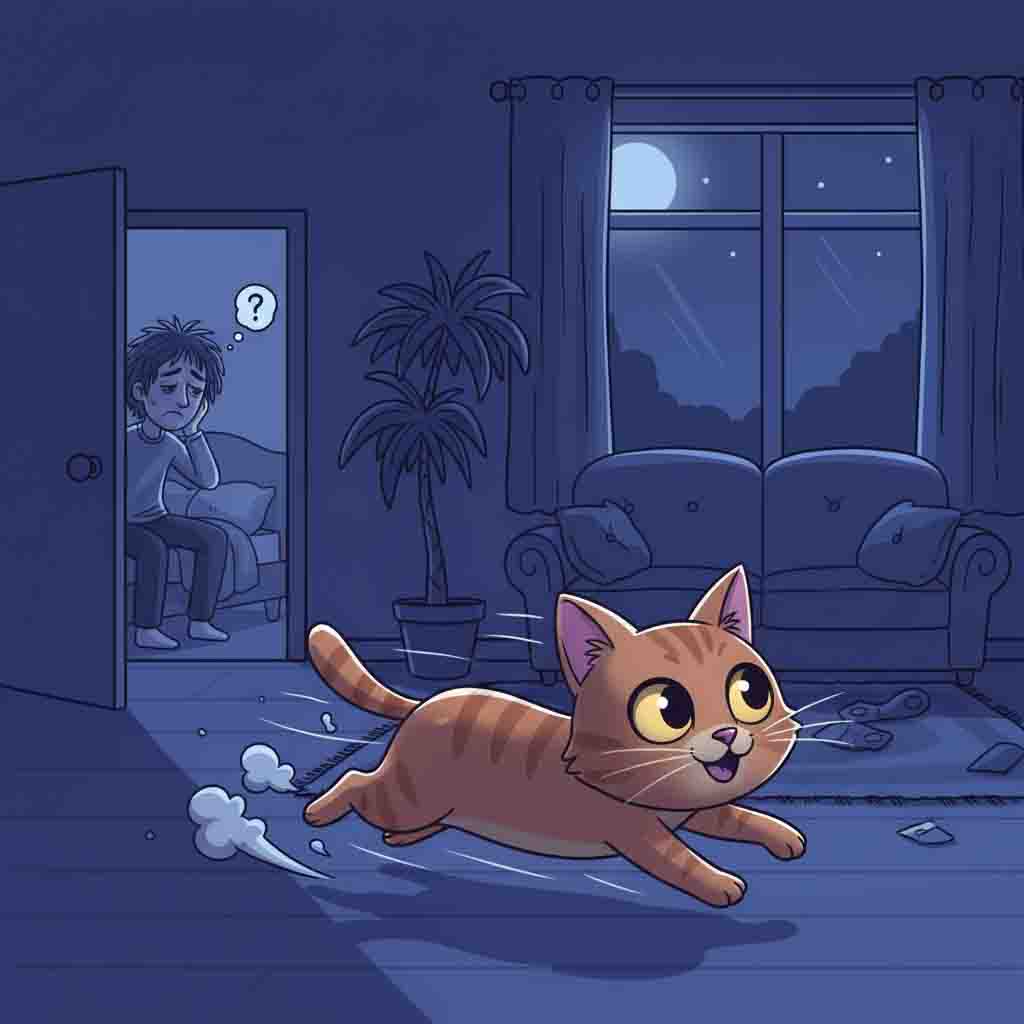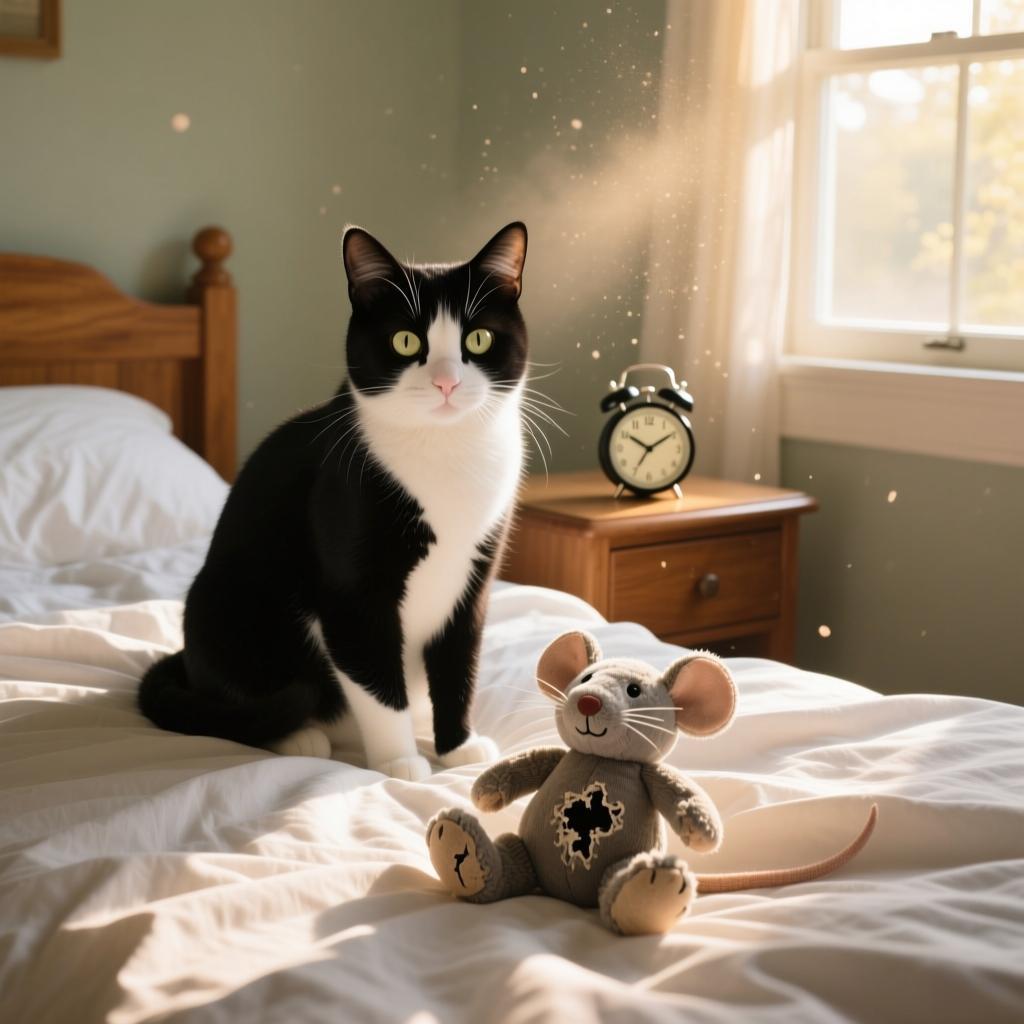It’s 3 AM. Why Is Your Cat Having a Party Without You?
If the pitter-patter of tiny feet at midnight has become your unwanted alarm clock, you’re not alone. Your cat isn’t plotting against you; they’re simply following a deep-seated biological script. Understanding the “why” is the first step to reclaiming your sleep.
The Midnight Marathon: It’s in Their Genes
Before you get frustrated, know this: your cat is not being naughty. This behavior, often called “zoomies,” stems from their nature as crepuscular predators.
-
Crepuscular Means “Low-Light Lover”: In the wild, a cat’s prime hunting times are at dawn and dusk when their prey is most active. Your home may be safe, but your cat’s internal clock is still set to this ancient schedule. That 4 AM surge? That’s their innate drive to patrol, hunt, and explore kicking in.
-
The Boredom Factor: A cat that sleeps all day while you’re out is essentially storing up a massive amount of energy. With no outlet, that energy has to explode sometime—and that time is often the quiet, still middle of the night.
-
Seeking Your Attention: Sometimes, even negative attention is rewarding. If your cat learns that running across your face results in you stirring, talking, or even getting up, they may see it as a successful way to interact with you.
5 Peaceful Strategies to Sync Your Schedules
The goal isn’t to punish your cat’s instincts but to work with them. Here’s how to encourage a sleep schedule that works for both of you.
1. Become an Evening Play Hunter
Don’t just casually wave a wand toy. Right before your bedtime, initiate a structured, energetic play session that mimics the hunt. Use a wand toy to make it dart and hide, encouraging your cat to stalk, chase, and pounce. The key is to get them running and leaping until they are visibly tired and panting slightly.
Goal: To satisfy their predatory drive and expend their stored physical energy.

2. Serve a “Midnight” Feast Right Before Bed
In the wild, cats hunt, catch, kill, eat, and then sleep. You can replicate this cycle. After the evening play session, give your cat their largest meal of the day. A full belly triggers the desire to groom and then sleep, naturally encouraging them to settle down for the night.
Goal: To trigger the natural “eat-then-sleep” instinct and keep them full through the night.
3. Ignore the Midnight Antics (This is Crucial)
This is the hardest part. When your cat acts out at night, you must resist the urge to interact. No talking, no pushing them away, no getting up. Any reaction, even a negative one, is a reward. Consistency teaches them that the night is boring and their efforts are pointless.
Goal: To remove all reinforcement for nighttime attention-seeking behavior.
4. Enrich Their Day, Not Just Their Night
A bored cat is a nocturnal nuisance. Leave out puzzle feeders, cardboard boxes, or window perches with a view of birds during the day. Automated toys can provide stimulation while you’re away. A mentally stimulated cat is more likely to be a calm cat at night.
Goal: To prevent energy from building up to explosive levels during the day.
5. Consider an Automated Feeder for the Wee Hours
If your cat is truly food-motivated and wakes you up for breakfast, take yourself out of the equation. An automated feeder can be set to dispense a small portion of kibble at, say, 5 AM. The cat learns that the magical food box provides breakfast, not you, so there’s no point in waking you up.
Goal: To break the association between you-waking-up and food-appearing.
Sweet Dreams Are Possible
With patience and consistency, you can teach your feline friend that the night is for sleeping. By respecting their instincts and providing appropriate outlets, you can transform your midnight zoomie demon back into the cuddly companion you love—at least until the sun comes up.





